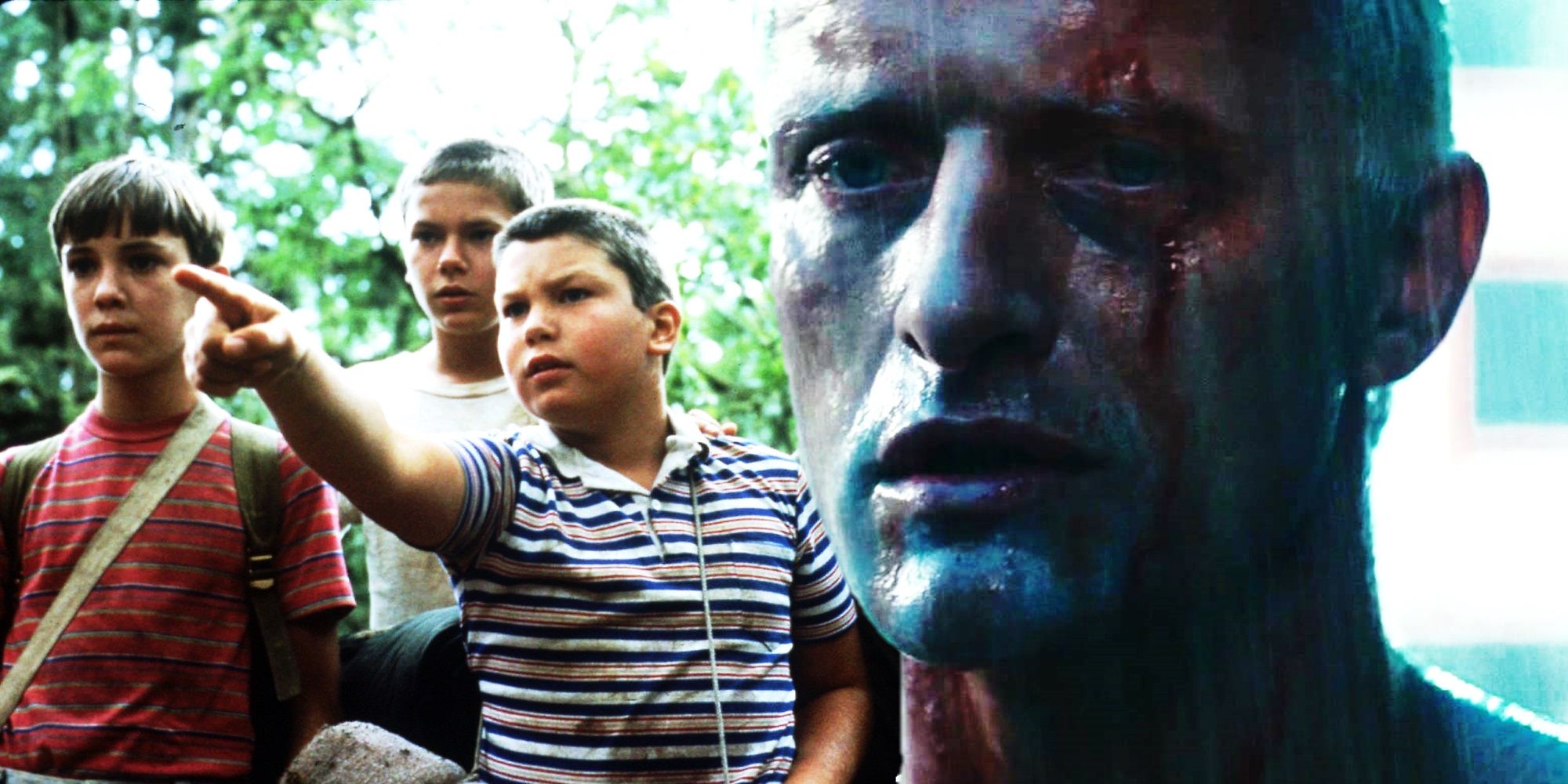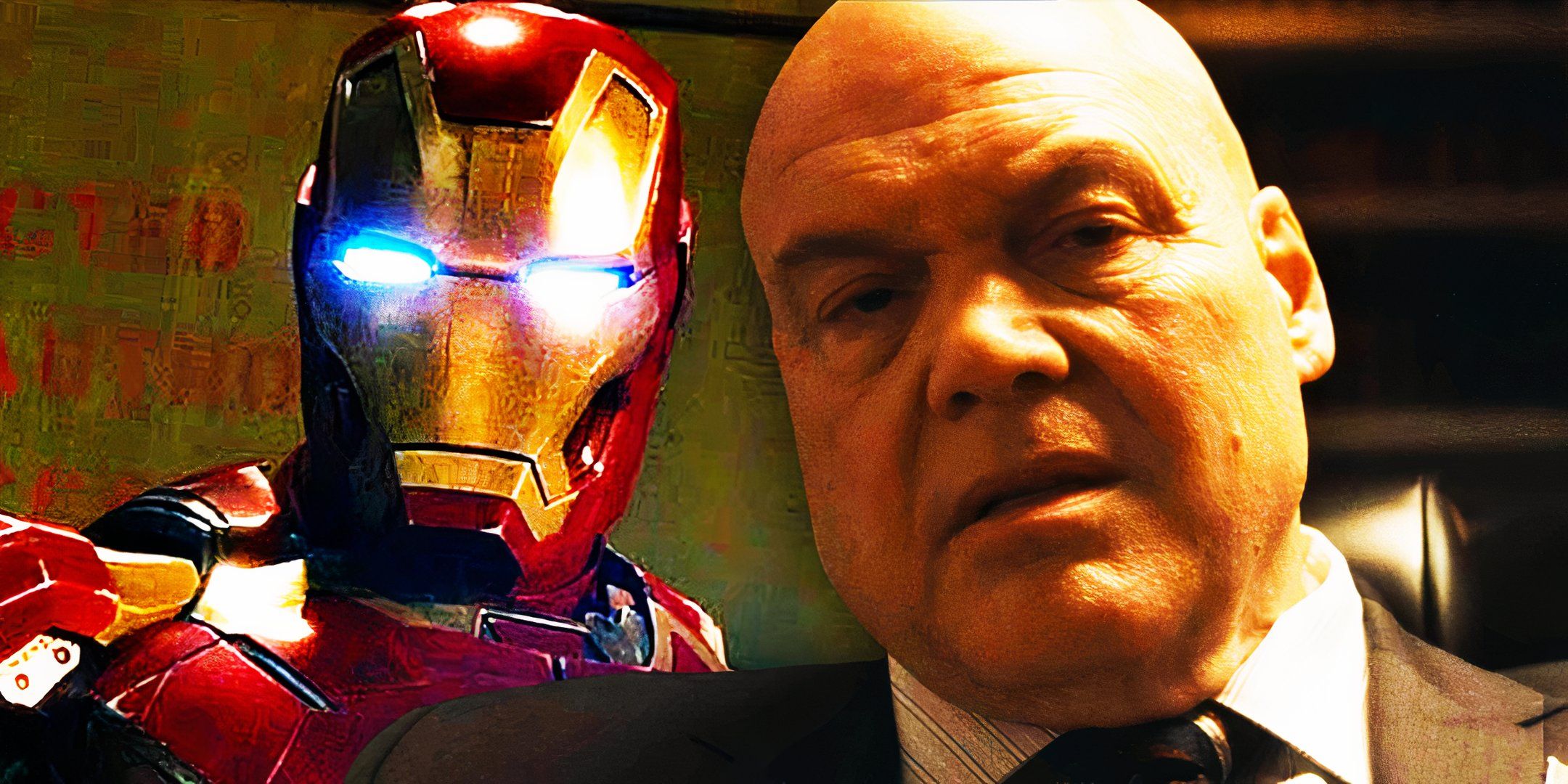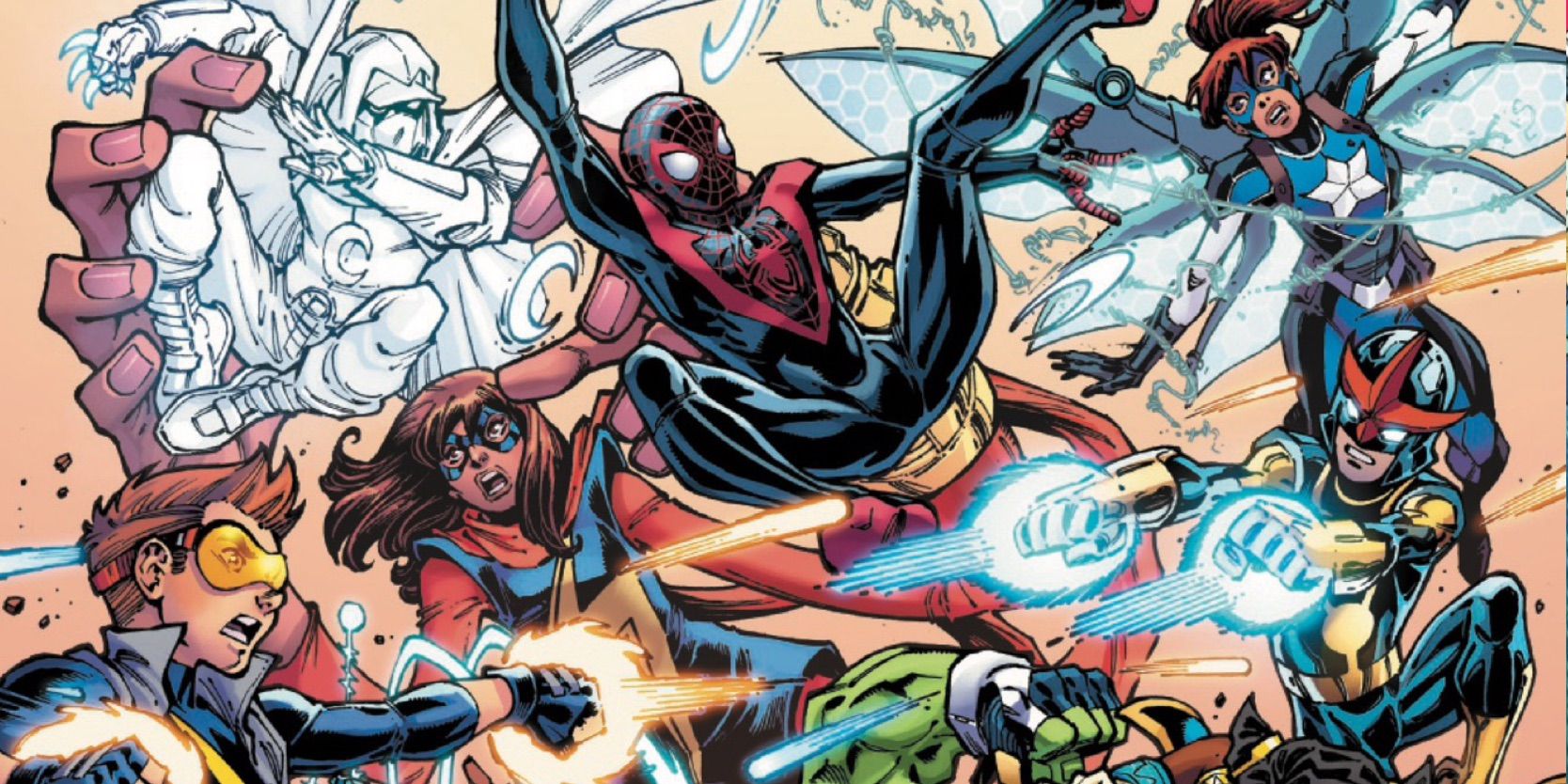10 Movie Adaptations With Better Titles Than The Books They're Based On
Summary Movie titles need to be snappier than book titles to grab attention on marquees.
Sometimes title changes clarify the movie's content, making them clearer and more concise.
For example, Blade Runner is a more enticing title compared to the book's original title, Do Androids Dream of Electric Sheep?
From Die Hard to Goodfellas to Field of Dreams, movie adaptations of books often change their titles to something snappier and more memorable than that of the source material. Literary titles can be poetic and ambiguous to intrigue readers, but movie titles need to be quick and concise enough to grab people’s attention on a marquee. Not many viewers would plunk down a few bucks to watch a movie called Do Androids Dream of Electric Sheep?, but a lot of people would be enticed by a movie called Blade Runner (if E.T. didn’t exist).
Sometimes, the title is changed to clarify what the movie is about. The title of Stephen King’s novella Rita Hayworth and Shawshank Redemption was shortened to just The Shawshank Redemption in its film adaptation so it wouldn’t be mistaken for a Rita Hayworth biopic. Sometimes, the title is shortened. For example, the word-salad book titles The Invention of Hugo Cabret and The Cabin at the End of the World were shortened to Hugo and Knock at the Cabin, respectively, for their film adaptations. These title changes are often for the best, because they’re clearer and more concise.
10 Atomic Blonde
Based on The Coldest City
David Leitch’s Atomic Blonde brought the kinetic action of the John Wick franchise back to the Cold War. Charlize Theron stars as a high-ranking MI6 field agent desperately trying to retrieve a list of every active intelligence agent in Berlin on the eve of the Berlin Wall’s collapse. The movie was adapted from a 2012 graphic novel by Antony Johnston and Sam Hart named The Coldest City. Mercifully, the producers changed the title before releasing the film.
The Coldest City effectively evokes the spy genre, but it sounds more like a talky John le Carré spy story than the fast-paced action thriller that Atomic Blonde is. The title Atomic Blonde better captures the high-octane energy and ‘80s flash of the film adaptation. Atomic Blonde sounds a lot more like a potential franchise than The Coldest City.
9 Goodfellas
Based on Wiseguy
Before teaming up with Martin Scorsese to turn it into a movie, Nicholas Pileggi chronicled the life story of mafioso-turned-informant Henry Hill in his 1985 book Wiseguy: Life in a Mafia Family. In translating the story to film, Scorsese changed the title to Goodfellas. This was likely just to avoid confusion with Stephen J. Cannell’s TV series of the same name from the ‘80s, but Goodfellas is a much better title nonetheless.
Wiseguy sounds too corny and clichéd. It sounds more like a phony Hollywood interpretation of the mafia than the starkly realistic, almost documentary-like portrayal of the mafia that Goodfellas is. Plus, there’s a deliciously ironic bite to the title Goodfellas – these thieves and murderers are the furthest thing from “good fellas” – and that irony ties into the film’s signature dark sense of humor.
8 Manhunter
Based on Red Dragon
Five years before Anthony Hopkins would win a much-deserved Oscar for playing Hannibal Lecter in The Silence of the Lambs, the cannibalistic shrink made his first foray to the big screen in Michael Mann’s Manhunter. Lecter – here, renamed Lecktor – is played by Brian Cox, while Will Graham, the FBI agent who reluctantly teams up with him, is played by William Petersen. Manhunter was based on the first of Thomas Harris’ Hannibal Lecter novels, Red Dragon.
The title Manhunter is much more befitting of this crime thriller than Red Dragon. Red Dragon sounds more like a martial arts movie than a grisly police procedural about the hunt for a serial killer. Manhunter is much more in line with the actual story. The title Red Dragon would eventually be used for Brett Ratner’s 2002 remake, but that film was far inferior to Manhunter.
7 Who Framed Roger Rabbit
Based on Who Censored Roger Rabbit?
Robert Zemeckis wowed audiences with a revolutionary blend of live-action and animation in Who Framed Roger Rabbit. The film is essentially a detective noir set in a world in which humans co-exist with cartoon characters. Bob Hoskins plays a toon-hating P.I. who reluctantly works to clear Roger Rabbit’s name when he’s framed for murder. The movie was based on the book Who Censored Roger Rabbit? by Gary K. Wolf, although it departs significantly from the source material.
Not only is Who Framed Roger Rabbit a snappier title than Who Censored Roger Rabbit?; it also uses a double meaning to blend the film’s genres. The word “framed” refers to Roger being framed for murder in the film’s noir-ish mystery storyline. But it could also refer to Roger being framed by a camera, suggesting the story’s showbiz setting.
6 Stand By Me
Based on The Body
Rob Reiner’s coming-of-age masterpiece Stand By Me was adapted from the Stephen King novella The Body. The Body sounds more like a horror story, which is fitting for the King oeuvre, but not so much for a movie that promises a nostalgic trip to the ‘50s with a group of relatable kids. The Body emphasizes the plot point of the corpse, but that’s not the focus of the story.
The promise of seeing a dead body in the woods is what sets the boys off on their journey, but it’s really about their relationships and their brotherly love for each other. Stand By Me takes the focus away from the corpse and onto the Ben E. King track that acts as the film’s theme song. Plus, it highlights the friendship between these four boys who stick by each other through thick and thin.
5 Cape Fear
Based on The Executioners
In bringing John D. MacDonald’s novel The Executioners to the screen, J. Lee Thompson changed the title to Cape Fear. The Executioners sounds more like a medieval-based story about the gallows, or a prison movie about death-row inmates and the correction officers who put them down. The story is really about a sadistic serial killer named Max Cady who, upon his release from jail, seeks revenge against Sam Bowden, the attorney who got him convicted.
The story focuses on Sam’s desperate attempts to keep his family safe, which includes moving them to a houseboat in Cape Fear. The title Cape Fear suggests a family vacation spot with an unnerving undercurrent of terror, which perfectly sums up the movie. Unlike Red Dragon, when The Executioners was re-adapted for the screen by Martin Scorsese, he kept Thompson’s replacement title, Cape Fear – and it’s easy to see why.
4 There Will Be Blood
Based on Oil!
Paul Thomas Anderson used Upton Sinclair’s novel Oil! as a jumping-off point to explore Southern California’s oil boom of the late 19th and early 20th centuries in a cinematic form. But in adapting the story for the screen, he changed the title to There Will Be Blood. Oil! certainly gets to the point and tells the audience exactly what the story is about, but There Will Be Blood isn’t really about oil. Oil is just a black, sludgy visual symbol of the corruption of Daniel Plainview’s soul.
The title There Will Be Blood puts the focus more on Plainview’s dark downfall than the oil that made his fortune. With an exclamation point at the end, Oil! sounds more like a comedy, like Airplane! or Top Secret!. There Will Be Blood promises something much more sinister – and the movie delivers.
3 Die Hard
Based on Nothing Lasts Forever
John McTiernan took Roderick Thorp’s novel Nothing Lasts Forever and turned it into the perfect action movie. There are a few key differences between Nothing Lasts Forever and its adaptation Die Hard (not least the title). In the book, the protagonist is a retired NYPD detective, and he attends his daughter’s office Christmas party, not his estranged wife’s. But the core concept is the same: terrorists invade a skyscraper during an office Christmas party and it’s up to a lone-wolf cop to save the day.
Nothing Lasts Forever sounds more like a romantic drama than an action thriller. Die Hard sounds sharper and punchier, promising plenty of exhilarating action. Plus, it follows the grand tradition of two-word action movie titles: Top Gun, Point Break, Lethal Weapon, First Blood, Dirty Harry, Mad Max – it’s in good company.
2 Field Of Dreams
Based on Shoeless Joe
W.P. Kinsella’s Shoeless Joe originated the story of an Iowa farmer who uses his magical cornfield as a conduit to bring back the ghosts of legendary baseball players. But Field of Dreams took that novel and turned it into the ultimate father-son story. Shoeless Joe isn’t a terrible title, but it doesn’t suit the story as well as Field of Dreams. Shoeless Joe makes it sound like Shoeless Joe Jackson, the famous outfielder played by Ray Liotta, is the main character of the film.
But in the movie adaptation, Ray Kinsella’s magical baseball field that resurrects sports legends is just there to reconnect him with his late father John. The title Field of Dreams is more suitable for the fantastical elements of the story. Audiences might have been disappointed if they were expecting a straightforward biopic and got a movie about ghosts playing baseball.
1 Blade Runner
Based on Do Androids Dream of Electric Sheep?
Philip K. Dick’s iconic science fiction stories are often adapted for the screen, but they rarely retain their original title. “Adjustment Team” became The Adjustment Bureau, We Can Remember It for You Wholesale became Total Recall, and Do Androids Dream of Electric Sheep? became Blade Runner. Ridley Scott created his own subgenre of sci-fi cinema – the tech noir – with the futuristic detective story of Blade Runner. But the movie might not have become such a classic with the book’s wordy original title.
The term “blade runner” never actually appears in the source novel, but it’s a badass moniker for robot-hunting cops and an equally badass title for the movie. Do Androids Dream of Electric Sheep? is a great title for a thoughtful sci-fi novel, but as a movie title, it wouldn’t promise much excitement. Blade Runner promises action and suspense.











COMMENTS